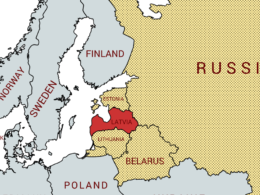Informing on fellow citizens, or "snitching", was commonplace in Russia during the Soviet era. Now, as the Kremlin cracks down on critics of Russia's war against Ukraine, denunciations are on the rise again as some use them to serve political ideals or personal vendettas, BBC found out.
"I was taught to snitch by my grandfather who was a snitch himself," a woman using the alias Anna Korobkova told the BBC. She claims to live in a major Russian city but refuses to disclose which one. Her grandfather anonymously informed for the Soviet secret police under Stalin when denunciations were part of daily life. Korobkova is now following his example, reporting anyone she believes opposes the war in Ukraine.
Korobkova says she has filed 1,397 denunciations since Russia's full invasion began. She asserts people have been fined, fired, and labelled foreign agents because of her reports.
"I do not feel sorry for them," she said. "I feel joy if they are punished."
New censorship laws were enacted after the February 2022 invasion. Since then, according to OVD-Info, Russian human rights group, about 8,000 cases have been launched against people for allegedly discrediting the military.
Korobkova mainly targets those speaking to media, especially international outlets like the BBC. One frequent target is anthropologist Aleksandra Arkhipova. "She has reported me seven times," said Arkhipova who left Russia. "Writing denunciations is her way of interacting with authorities. She considers it her mission." Arkhipova believes Korobkova's actions could have contributed to her being labelled a foreign agent in May. "Friends of mine, whom she denounced, now refuse to give any comments to any media. So, you could say she has been successful. Mission completed."
Another target was Moscow teacher Tatiana Chervenko. Korobkova saw her interview and began denouncing Chervenko, contacting her employer and officials. Chervenko was fired in December 2022.
Korobkova shows no regret, proudly keeping a database of her targets and the consequences. She claims six people were fired and 15 fined due to her reports.
BBC journalist reported that Korobkova exercises caution in communicating with her, opting exclusively for email contact and refraining from revealing her identity or providing verification.
Korobkova articulates two primary motives for disclosing information about her compatriots. Firstly, she asserts that she believes her actions contribute to Russia's war efforts against Ukraine. Secondly, she sees this as a measure to safeguard her own financial stability. As an individual working part-time as a humanities professor, heavily relying on her savings, Korobkova expresses anxiety about the possibility of Russia having to pay reparations if the war favors Ukraine. She believes such an outcome could have widespread financial implications for the entire country and its residents.
Explaining her perspective, she contends, "All those who oppose the special military operation are rivals of my own well-being."
Although Korobkova says she goes after enemies of the state, some Russians say denunciations are being used to settle personal scores.
Yaroslav Levchenko, a fisherman from Kamchatka, recounted being assaulted by a colleague after refusing a drink, suspecting the man already disliked him. At the police station to file a report, Levchenko learned he had been accused not of assault but of anti-war views. He was arrested in July for allegedly justifying terrorism, charges he denies. Unable to speak directly to media, Levchenko says via letters from prison, "Investigators state I used physical force towards other seamen... expressing intentions of participating in hostilities against the Russian Federation." Friends believe the denunciation aimed to divert attention from the assault and alcohol consumption.
Russian police acknowledge a flood of denunciations since the invasion began. One retired officer said people are "always looking for an excuse" to report someone over the "special military operation".
With Russian authorities repeatedly demanding punishment of "betrayers", serial informants like Korobkova show no inclination to stop.
"I'm going to keep writing denunciations," she told the BBC. "I have a lot of work to do."
Related:
- Poll: Most Finns believe Russians bear collective guilt for not resisting the war, back Ukraine's NATO aspirations.
- The Independent: Russia planned to starve Ukrainian population before the 2022 invasion, evidence finds.
- Russians ready to end the war, but not to pay reparations and don't repent – Ukrainian sociologists.





